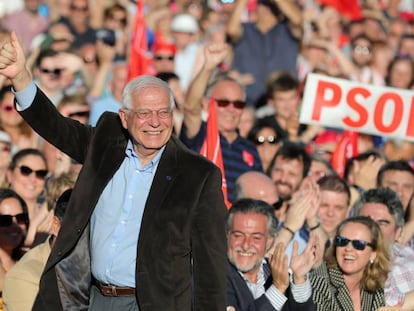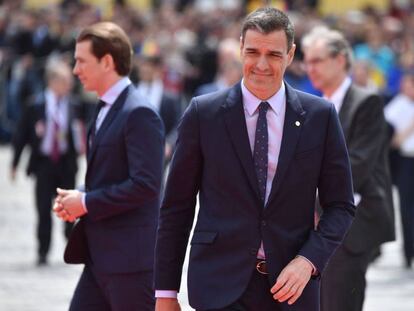Spanish PM takes leading role in negotiations for EU’s top posts
The inconclusive results of the European election put Pedro Sánchez in a privileged position to build consensus over the makeup of the new parliament
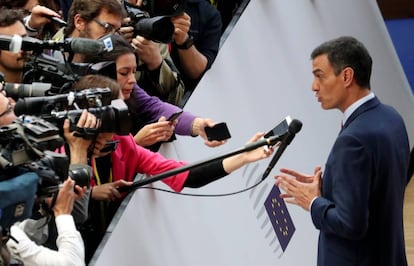
Acting Spanish Prime Minister Pedro Sánchez of the Socialist Party (PSOE) has assumed a key role in the negotiations over who will occupy the top posts in the European Union following the Sunday elections.
At a summit in Brussels on Tuesday, European leaders met to discuss nominations for the new heads of the European Commission, European Council, European Parliament and Central European Bank, as well as the High Representative for Foreign Affairs and Security Policy.
Sánchez’s influence could be crucial in the spat over EU job posts, where German interests clash against the French
The selection must take into account geographic and political criteria, as well as gender and the size of the countries. “In the real world it is always difficult to achieve a perfect balance,” said Donald Tusk, the president of the European Council, at the summit.
Sánchez has become a key figure in these negotiations, which are shaping up to be the most complicated in the history of the EU club, given that neither of the parliament’s major groups – the European People’s Party (EPP) or the Party of European Socialists (PES) – achieved a clear majority at the European election on May 26.
The results have ended the de facto coalition that dominated the European Parliament, and parties must now consider other alliances. This uncertainty has placed Sánchez in a privileged position to negotiate between French President Emmanuel Macron, who is part of the Alliance of Liberals and Democrats for Europe (ALDE) and German Chancellor Angela Merkel, from the EPP.
“I am the chief negotiator for the Social Democratic family,” Sánchez declared upon arriving at the EU summit on Tuesday.
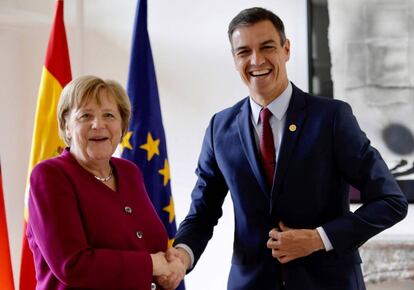
At a working lunch on Tuesday, Sánchez met with three leaders of the ALDE wing of the European Council: Macron, Dutch Prime Minister Mark Rutte and Belgian Prime Minister Charles Michel.
The meeting, which was also attended by Portuguese Prime Minister Antonio Costa, a socialist, looked to forge a common front to push for nominations that will bridge the demands of the Socialists and Liberals, and reduce the presence of the conservatives, who have control of three EU institutions (the Council, Commission and Parliament).
“The candidate for each of these posts must reflect the new political balance that has emerged, including the Social Democrats and Liberals,” Spanish sources indicated after the meeting.
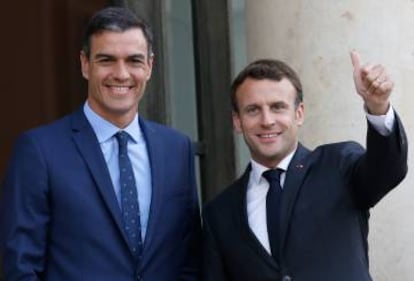
Both Sánchez and Macron are aware that the discussion must include the EPP, which won the highest percentage of the vote at Sunday’s election. According to diplomatic sources, the two leaders met with German chancellor Angela Merkel separately to begin negotiations that “will likely lead to a power-sharing agreement between the three main groups, and who knows, perhaps the inclusion of the European Green Party.”
Sánchez, as a representative of a large country among small ones, and a small one among the big ones, has a crucial role to play in the deal-making process. His influence could be crucial in the spat over EU job posts, where German interests clash against the French.
“Spain is in an ideal position to maintain the balance,” said a diplomatic source of one of the liberal governments in the EU Council. “It has a strengthened electoral mandate, with a path ahead, and it represents the second political family of the continent.”
Sánchez’s newfound strength following local, regional, national and European elections held in Spain in under a month is all the more striking as up to a dozen governments are facing early elections or the imminent collapse of their respective coalitions.
“Sánchez has an opportunity, but it is not without its risks,” said a diplomatic source. “The required balance is very fragile, and just one single excessive demand or miscalculation could break it.”
English version by Melissa Kitson.
